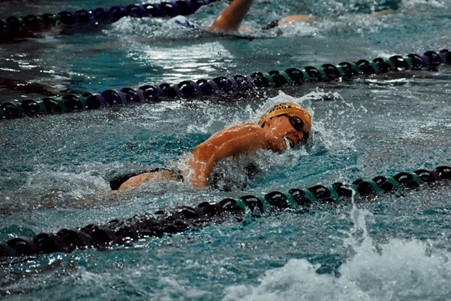Sex, Drugs, and Rock n ‘roll
Last month’s article in “Ethics Is Not a Dirty Word” looked at the Olympic games from a standpoint of what the Olympics could teach us about Ethics.
I finished by asking the question of whether these Olympic games would live up to expectations and commented:
“The question is not whether these games will be marred by controversy, but more of what type of controversy. It seems ripe for political statement with conflict in Gaza, primed for extensive drug abuse, and historically open to corruption and bribery.”
Well, they did not disappoint!
It was a smorgasbord of cheating, scandals, and geopolitical one-upmanship.
To remind you, the intent of the Olympics, when first introduced, was to celebrate international sporting excellence in the spirit of friendship, solidarity, and unity. It was about building a more peaceful and connected world through organized sports — my, how the worm turns!
Details of all the scandals can be found on social media outlets. As my title suggests, I want to talk about sex, drugs, and rock n’ roll – who should and shouldn’t be allowed to participate and the ethical concerns around each of these.
Sex
Possibly the biggest scandal of this Olympics was the treatment of the Algerian boxer, Imane Khelif. She is a cisgender – a person whose gender identity matches the sex they were assigned at birth. Because she happened to hit harder than the average girl, she copped abuse from transphobic activists that she has abused testosterone.
The inclusion of transgender males or females has already been excluded from the Olympics, and World Athletics has indicated that these decisions are here to stay. How do transgender individuals fit into the Olympics or do they?
It begs the question, will the time come when we have a new category or even new games for transgender individuals to compete?
That aside, my problem is with how she has been treated by fellow competitors, so much for the ethics of friendly competition and solidarity.
Two further examples were the convicted sex offender who competed for the Dutch volleyball team and the French hurdler accused of domestic violence. Every media outlet openly announced the Dutchman as the “child rapist.” He competed amidst boos from the crowd, lost his match, and made a hasty retreat from the games.
The French hurdler was one of the faces of the 2024 Games promotion but seemed to avoid much of the discrimination paid to the volleyball player.
The press and spectators’ openly targeting such individuals further reflects the true spirit of friendly competition in the Olympics, which has long since died. Beyond this however is the question as to whether convicted criminals should be allowed to compete?
The sarcastic side of me says if the USA can let a convicted criminals run for Presidential office who is the Olympic committee to ban similar offenders.
Journalists were also criticized for their sexist comments directed toward female athletes, and camera operators warned not to film women athletes differently.

Drugs
Of course, no Olympic games would be complete without the drug abuse claims.
The biggest controversy surrounded the Chinese swimming team. Eleven of the 23 swimmers were involved in a drug testing debacle. Data has shown that Chinese swimmers are tested more extensively than other teams, such as Australian or American teams.
One of these swimmers, Pan Zhanle, who won the 100 m freestyle, breaking his one record by half a second, was heavily criticised and suspected of further drug abuse.
American sprinter Erriyon Knighton was provisionally suspended before the Olympics but then allowed to compete when the decision was overturned by the United States Anti-Doping Agency (USADA), citing the positive result was likely due to contaminated meat, a claim also used by the Chinese to negate their drug testing results.
Following the Olympics, the Athletics Integrity Unit have appealed to the Court of Arbitration for Sport (CAS) against USADA’s decision.
Finally, Australian field hockey player Tom Craig was arrested by the police after he was seen purchasing cocaine from an underage dealer on the streets. Craig was released without charge and lost his remaining Olympic privileges and missed the closing ceremony.
What I find interesting is that positive decisions in the cases of the Chinese and the Americans were overturned by investigations in the country where they occurred. It is like giving an alcoholic a bottle of wine and telling him not to drink!
We expect ethics to be at the forefront of athletes and officials, but sadly, that isn’t always the case. There is such a fine line between substance abuse and the testing levels of detection; you would have to live in isolation to be 100% safe.
Drug abuse in professional sports is an all too familiar occurrence, and everyone has an excuse. I am sure there are legitimate claims, but with competition so high in the Olympics, gold medals decided by a hundredths of a second, it is not going away.

Rock n’ Roll
Many other incidents could be raised. Not the least are the geopolitical influences on the games, the exclusion of participation by Russia and Belarus, calls to ban Afghanistan and Iranian athletes, and the controversy of Israeli athletes.
During the actual games, the use of drones by the Canadian soccer team to spy on competitor training camps. Allegations of fencing officials deliberately manipulating tournament results. The Georgian judo athlete who attacked his opponent when he lost his temper, the athlete who allegedly groped a woman in a Paris café.
A smorgasbord of unethical behaviour.
One of my biggest curiosities about how the Olympics have become is the inclusion of professionals. A case in point is the USA basketball team, which includes players like LeBron James ($128M), Stephen Curry ($109M), Giannis Antetokounmpo ($90M), Kevin Durant ($88M), and other high-paid professionals.
Professional tennis players and soccer players are also included in country teams, which has to add bias to the chances of winning.
Athletes also get different rewards for winning medals, underpinning that the Olympics is increasingly more about money and less about fair competition.
Among the highest rewards for a gold medal are Singapore (737,000), Taipei ($720,000), Hong Kong ($642,000), and Thailand ($365,000). Other rewards such as restaurants, cars, houses, and even cows are given in less developed countries.
The original intent all those years ago—friendly competition and ethical conduct—is in danger because money has entered the equation; it dictates the games. Isn’t loading up teams with professionals just a convoluted form of buying medals?
When you put it all together, the influence of sexual advantage, performance-enhancing substances, and inconsistent treatment of social misfits, what a mess they have become.
Perhaps we need another set of games—the ethical Olympics—to complement the free-for-all Olympics and the para-Olympics.
Maybe it is just all rock n’ roll at the end of the day.
Till next time, Thanks for reading,
Calvin

